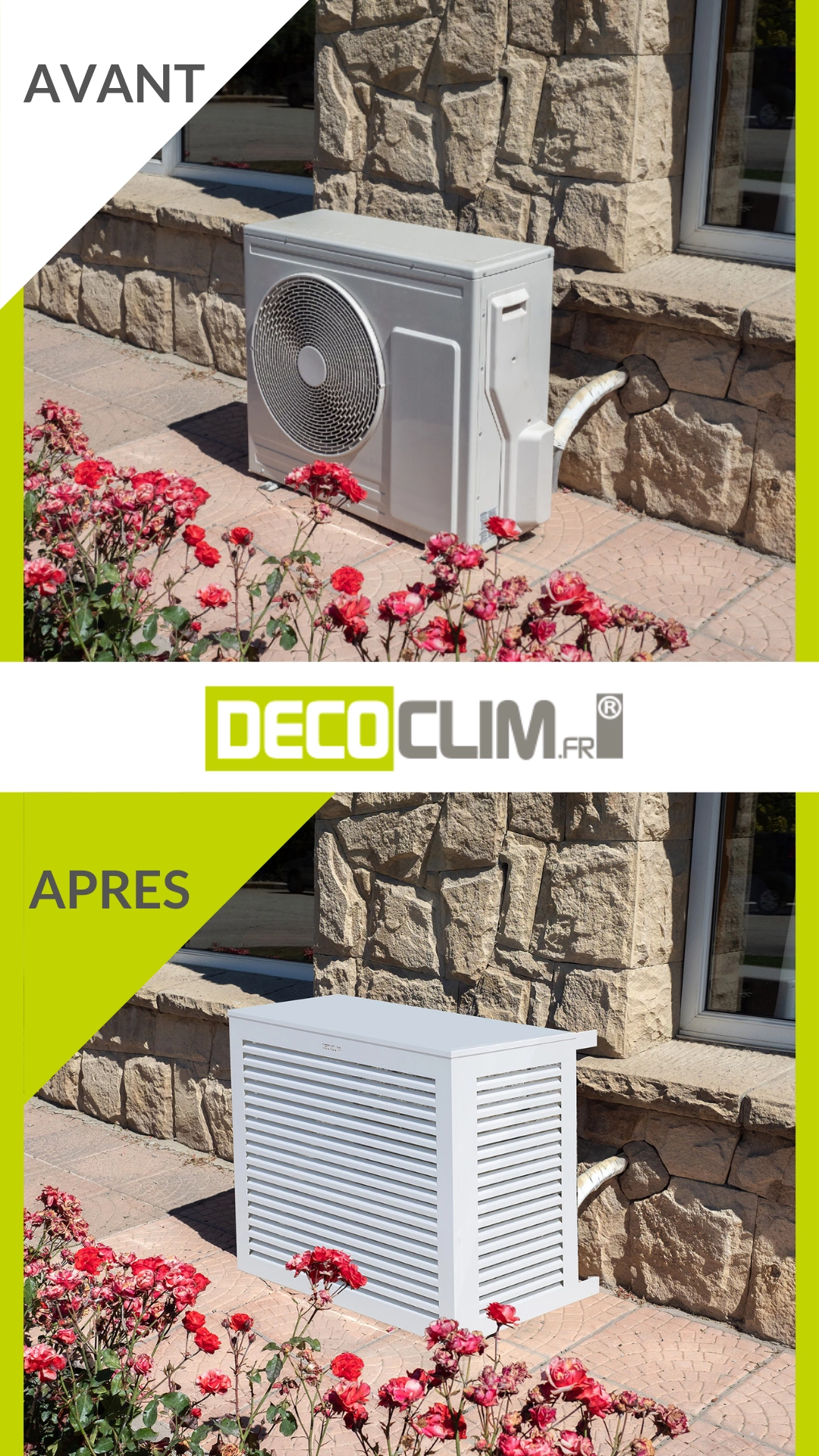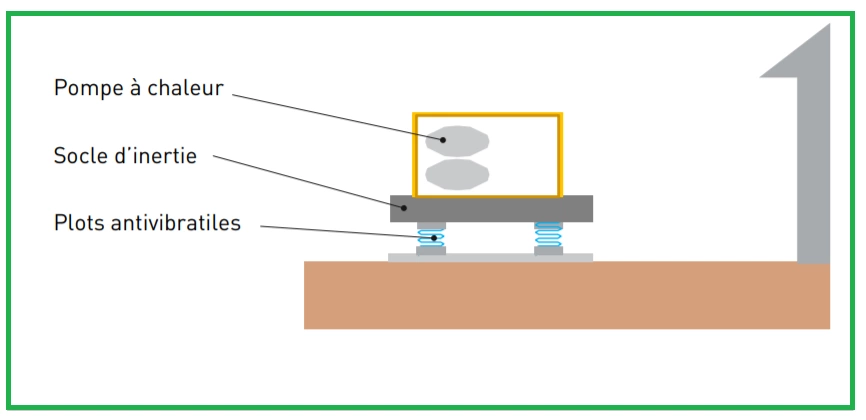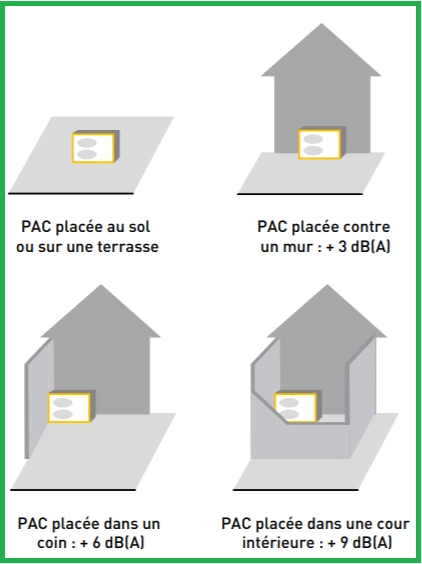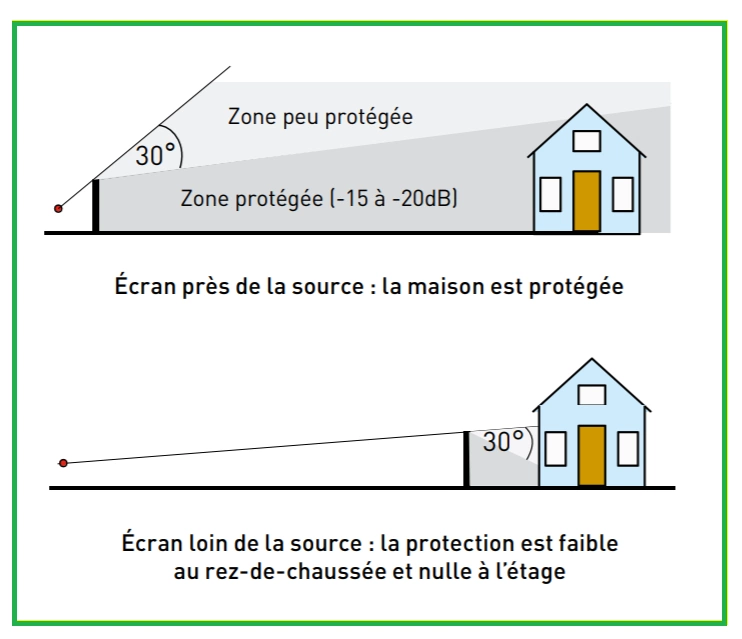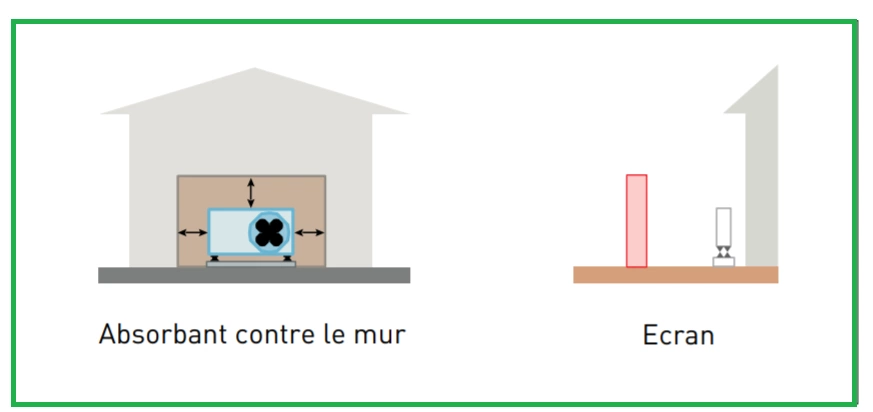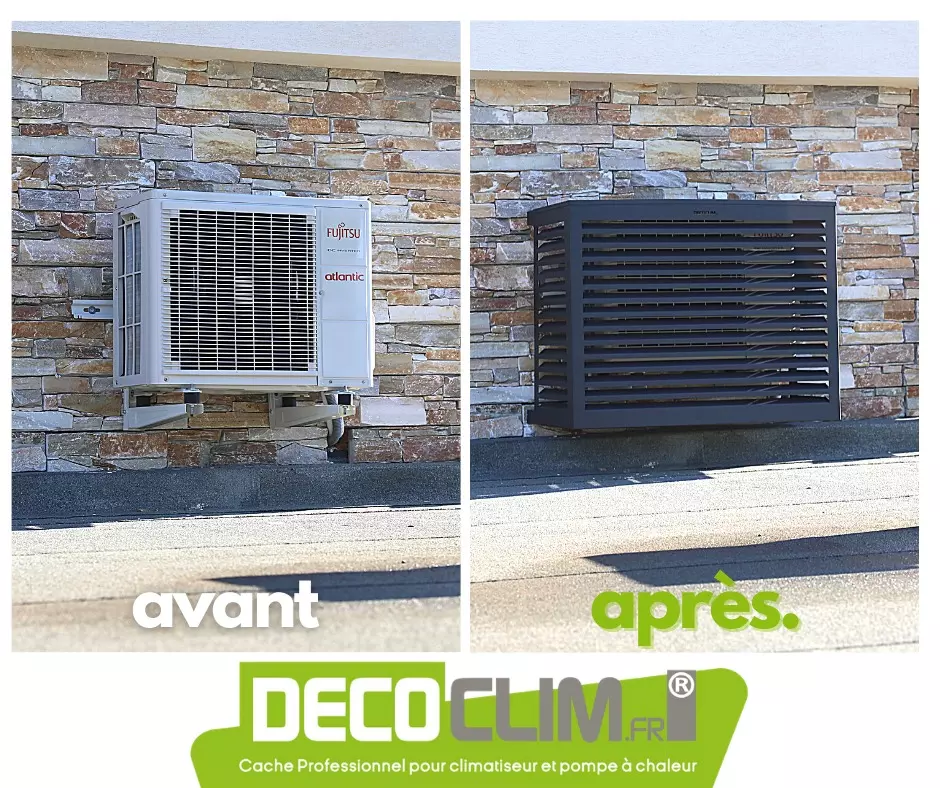Noise pollution caused by your heat pump or that of the neighbor: what are the obligations and the decibel thresholds not to be exceeded according to the law?
According to the Health Code: no particular noise must, by its duration, its repetition or its intensity, affect the tranquility of the neighborhood or the health of man.
In terms of noise pollution generated by a heat pump, the decree of August 31, 2006 on neighborhood noise applies (articles R.1334-33 and R.1337-7 of this code).
This decree does not set a maximum decibel threshold not to be exceeded in absolute terms, but sets a maximum noise emergence to be attributed to the device. This means that the difference between the ambient noise when the device is not working and the noise when the device is working is taken into account. Emergence is therefore a notion relating to the environment in which the heat pump is placed. Basically, its acceptable decibel level is lower if it is in a quiet environment than if it is installed near a national road where traffic is already generating noise.
The decree stipulates that the difference between ambient noise and residual noise (“emergence”) must not exceed 5 decibels during the day (from 7 a.m. to 10 p.m.) and 3 dB(A) at night (from 10 p.m. to 7 a.m.).
If you are the owner of a heat pump which is proven to exceed these noise thresholds, you expose yourself to the payment of a fine of €450, or even the confiscation of the heat pump in question.
Note that in new housing, the legislation is more restrictive. Manufacturers are indeed now subject to the NRA 2000 regulations (orders of June 30, 1999 – Official Journal of July 17, 1999, p. 10658 et seq. and p. 10660) which imposes absolute thresholds this time in terms of noise in the accommodations. It is not allowed to exceed 35dB in living rooms for noise generated by heat pumps.
In any case, since the decree of July 28, 2020, maintenance of the heat pump is compulsory every 2 years for appliances with a power between 4 and 70 kW, and every year for appliances with a higher power. at 70kW.
Now that we've laid the framework, let's get to the heart of the matter:
How to reduce the noise of a heat pump?
Choose the quietest heat pump model
If you have the option of installing a geothermal or hygrothermal heat pump, these are the quietest models.
If you cannot carry out this type of installation, then in this case compare the sound levels indicated on the labels of the heat pumps and keep in mind that a difference of 3dB between two devices is significant.
Finally, it is important to correctly size the appliance according to your heating and hot water needs. A heat pump with a power that is too high or too low in relation to your needs can in fact generate unnecessary excess noise pollution by multiplying untimely stops/starts or by operating continuously.
Install sound insulation to reduce noise pollution
The installation of insulating materials near the heat pump is also interesting because these materials make it possible to reduce the reverberation of sound waves (foam, glass wool, etc.), and prevent the propagation of vibrations (felt, rubber, cork) which are sources of noise.
Finally, you can also use natural acoustic insulation solutions such as a hedge, an embankment, or a wall to divert the noise waves in another direction.
Place an anti-noise box on the heat pump which allows the air to circulate around the device
All the solutions seen above are useful but can be complicated to set up and expensive. The most popular solution is therefore usually the installation of insulating casing around the heat pump to reduce its noise emissions.
But beware ! The heat pump needs air circulation all around it at all times to work well. It is therefore advisable to avoid buying or manufacturing an airtight soundproof box which would insulate the noise acoustically but which would harm the performance of the heat pump.
Prefer a quality formwork equipped with large louvers, specially designed for heat pumps by a specialist.
This is the case with Decoclim heat pump covers . These heat pump boxes reduce noise pollution without degrading performance. Their material, their assembly and the specific orientation of their louvers insulate motor and fan noise, redirect sound waves away from the ears, and thus reduce heat pump noise by 10 to 30%. A really big gain when it comes to decibels.
It is also an anti-noise solution that is easy and quick to install, and which also brings an aesthetic gain because the box is decorative, it dresses the heat pump and makes you forget about it.
Naturally, these insulating formwork can be removed just as simply, like a painting, to allow maintenance of the device.
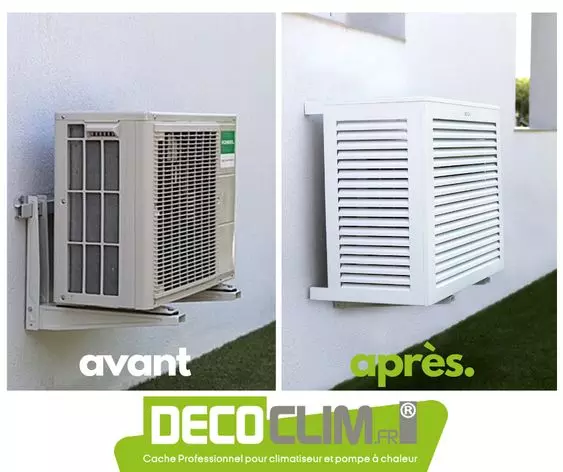
Ensure regular maintenance of the heat pump
It is important to carry out regular maintenance of the heat pump, every year or every two years at least depending on its power, to prevent leaves or twigs from entering the device and interfering with the movement of the fan or the operation of the motor, which would have the effect of generating additional noise which it is desirable to avoid. It is also necessary to clean the filters regularly to prevent them from clogging.
Your neighbor has installed a heat pump whose noise bothers you: what to do?
Dialogue is always preferred first.
For a quick effect, without incurring major work, you can already ask him if he would agree to install shuttering formwork on his heat pump to reduce noise.
Depending on the result, you can then consider with him the other insulating solutions described in this article and see, depending on the configuration of the premises, what it would be possible to put in place.
But if your neighbor does not show goodwill and turns a deaf ear, do not hesitate to check whether he has complied with the legislation regarding the installation of outdoor air conditioners and heat pumps . Otherwise, he may be forced to remove the device and be fined. This perspective alone is sometimes enough to find the path to dialogue…


